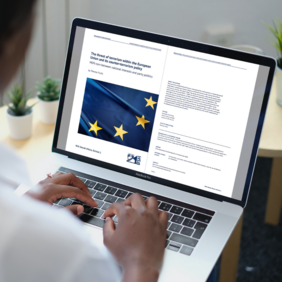This WiSi Online edition sheds light onto the research gap by quantitatively analyzing 14 counter terrorism resolutions over 15 years and by applying two competing theories, namely the liberal Intergovernmentalism and the securitization theory. The astonishing result is relatively clear: the voting behavior of the MEPs concerning counter-terrorism legislation is predominantly influenced by their EPG affiliation, and not by their national interests.
- Aktuelles
- Der Verband
- Akademien & Seminare
- Hochschulgruppen
- Publikationen
- Termine

